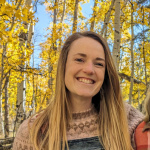How to help new students, researchers and faculty feel welcome in new polar spaces: a short guide to starting the academic year out right
August 31, 2022
Each year new people join our academic and non-academic polar institutions to do exciting science. How those people are (or are not) welcomed into our labs and institutions makes a world of a difference as to whether or not folks feel a sense of belonging in our spaces. Each of us can play a role in making those transitionary times easier on the folks we are welcoming into the spaces we do science in.
PSECCO asked the polar community what they did to make new students, researchers and faculty welcome, and here's what we learned some people have done (and maybe you can do too!):
We welcoming
- Be kind and welcoming.
- Be intentional about taking time to connect with people.
- Engage in (or start) a mentoring program! If this is too much, provide informal mentoring to new people in your spaces. Some institutions pair second+ year students/researchers/faculty with those who have been there for a while. This provides a place for new folks to ask questions that might not otherwise be answered by formal introductory materials. If you engage in mentoring, we encourage you to do a little learning about how to do it intentionally.
- Encourage new people to attend a weekly informal coffee hour, if one doesn't exist - start one so that people have a space to socialize outside of individual lab environments.
- If you notice a new person has specific research overlap with you, consider inviting them to coffee/tea shortly after they start. Not only do you learn more about their background, research, and career ambitions, but it can also help them feel comfortable to ask questions about life in your area, general graduate school or program issues, and department culture. It also has the potential to lead to some great project collaborations down the line!
Be a connector
- Share information about polar communities you can get involved with to link and build community inside and outside of our institutions; PSECCO has a list of national and international polar early career and affinity organizations to review as a starting place.
- Share information about listservs people might find handy! For example, cryolist is a great place to go for ice/polar-related opportunities, and you can encourage them to sign up for PSECCO community information too. There are varied discipline-specific listservs to learn about in your field too. Encourage new folks to ask people in their networks where they learn about most opportunities.
- If submitting a panel to a conference, invite new students to serve as panel respondents or chairs. These are low-stakes conference roles that introduces students to important conferences in the field, build their CV, and help them network with people at other institutions.
- Share funding and scholarship opportunities you might be aware of in and outside of your institutions.
- Explain how to navigate and find polar and institutional resources useful for career support; CryoCommunity is a great place to start for finding resources in the polar regions, and PSECCO also has a list of polar resource repositories to check out!
Help them find a place in your community
- Invite new people to join intramural sports teams that might be operating within a department. Don't have any? Join an ad hoc team (which often exist where intramural sports exist) or start one - they're fun!
- Make an effort to invite new folks to informal social events like linking up over beverages or going on group hikes!
- Connect incoming and current international students with campus groups or start your own. Host social/cultural events to facilitate students of different regional backgrounds to identify commonalities and differences that blend and compliment one another.
- Share in your learning! Host informal meet-ups or field trips to help students understand topics in your discipline more.
This is by no means an exhaustive list of ways you can help make people feel welcome in your polar communities, but it is a place to start. While interacting with any new folks, remember that community is really important for people to feel a sense of belonging in a new place/space, and oftentimes polar spaces can feel exclusive to a new person entering them without a support network. Being intentional about opening spaces to people who otherwise aren't engaged in them, is one small way to share in this wonderful cross-disciplinary area of study - polar science.
Do you have any ideas or suggestions for how to make new folks feel welcome? We'd love for you to share them with us on Twitter at @polarsecco!
A special thanks to polar early career scientists Catherine Bruns and Jullian Williams for sharing their insight into how to make new folks feel welcome!
